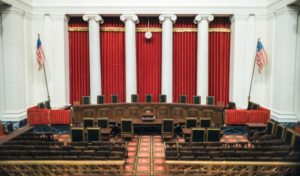Regulatory Comments and the Major Questions Doctrine
Courts should not rely on the number of public comments to assess the legality of regulations.
The Trump Administration’s Weaponization of the “Major Questions” Doctrine
Deregulatory attacks have twisted a legal concept meant only to restrain extraordinary actions.
A New Era for Regulatory Review
President Biden’s memorandum modernizing regulatory review addresses three key failings in the review process.
Toward a “Unitary Executive” Vision of Article II?
The Supreme Court relied on misleading arguments and revisionist history to strike down the CFPB’s structure.
Undoing the Regulatory Policies of the Trump Administration
The Administration has taken an aggressive approach in using legal tools to advance its regulatory agenda.
Regulatory Rollbacks Have Changed the Nature of Presidential Power
Strategies used by the Trump Administration will serve as a blueprint for future Presidents.
A Distinction in Agency Design Without a Difference
The Solicitor General says it is constitutionally relevant that one person heads the CFPB, but it is not.
EPA Will Say Anything to Avoid Addressing Climate Change
New carbon rule is entirely at odds with Trump Administration’s earlier rhetoric on the Clean Power Plan.
Achieving Climate Goals Will Require Sound Energy Storage Policies
Clean energy systems will not reduce emissions unless states promote effective energy storage policies.
Responding to Anti-Regulatory Tropes
Marchand’s argument questions key regulatory processes and ignores the net benefits of regulation.
Challenging the Anti-Regulatory Narrative
The Clean Air Act’s success reveals the flaws in the standard critique of the administrative state.
Structural Reforms to Improve Cost-Benefit Analyses of Financial Regulation
Independent agencies should mirror executive branch practices to overcome judicial scrutiny.












